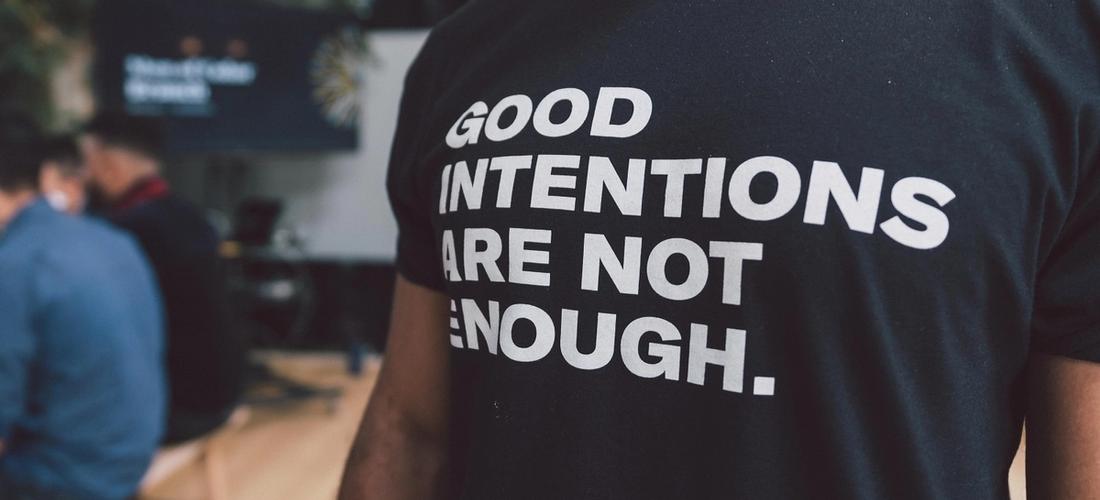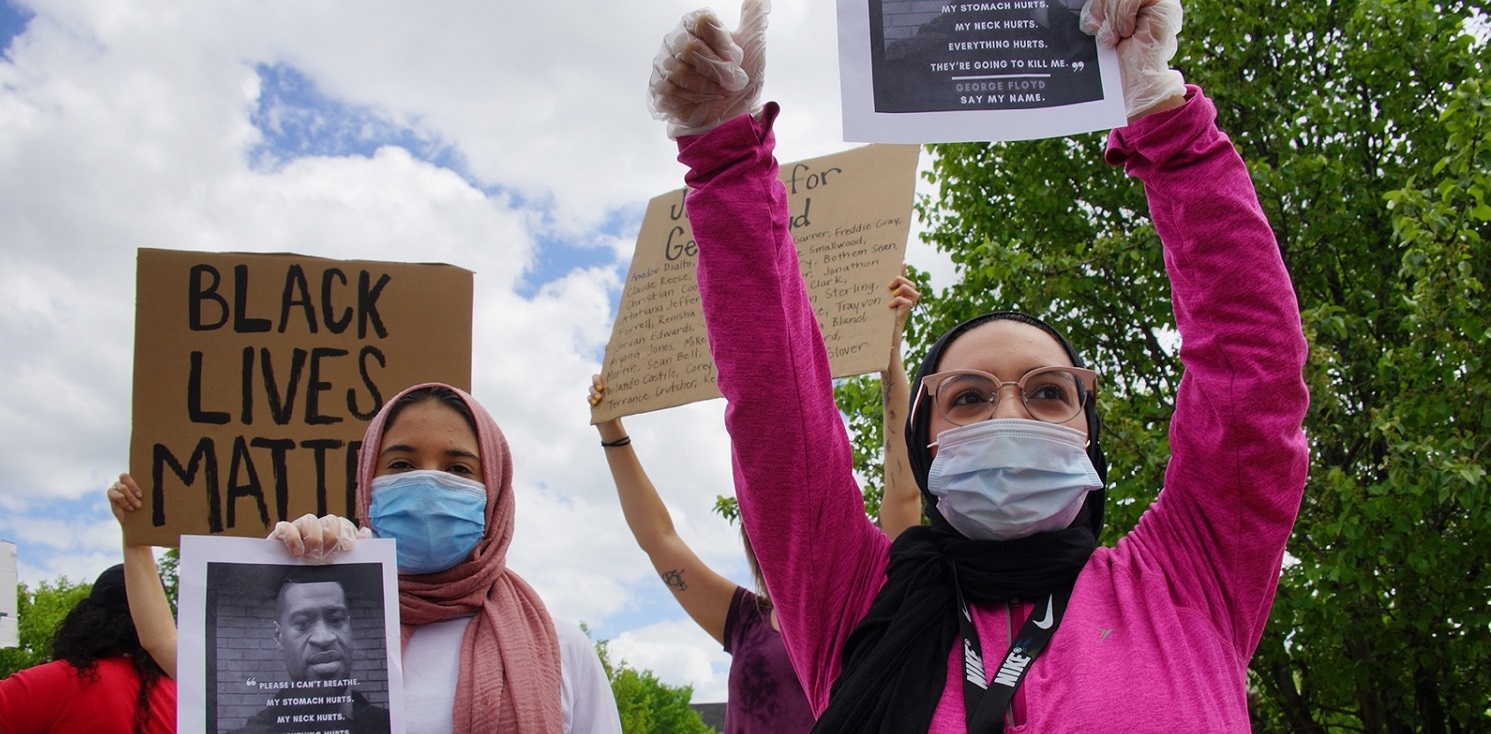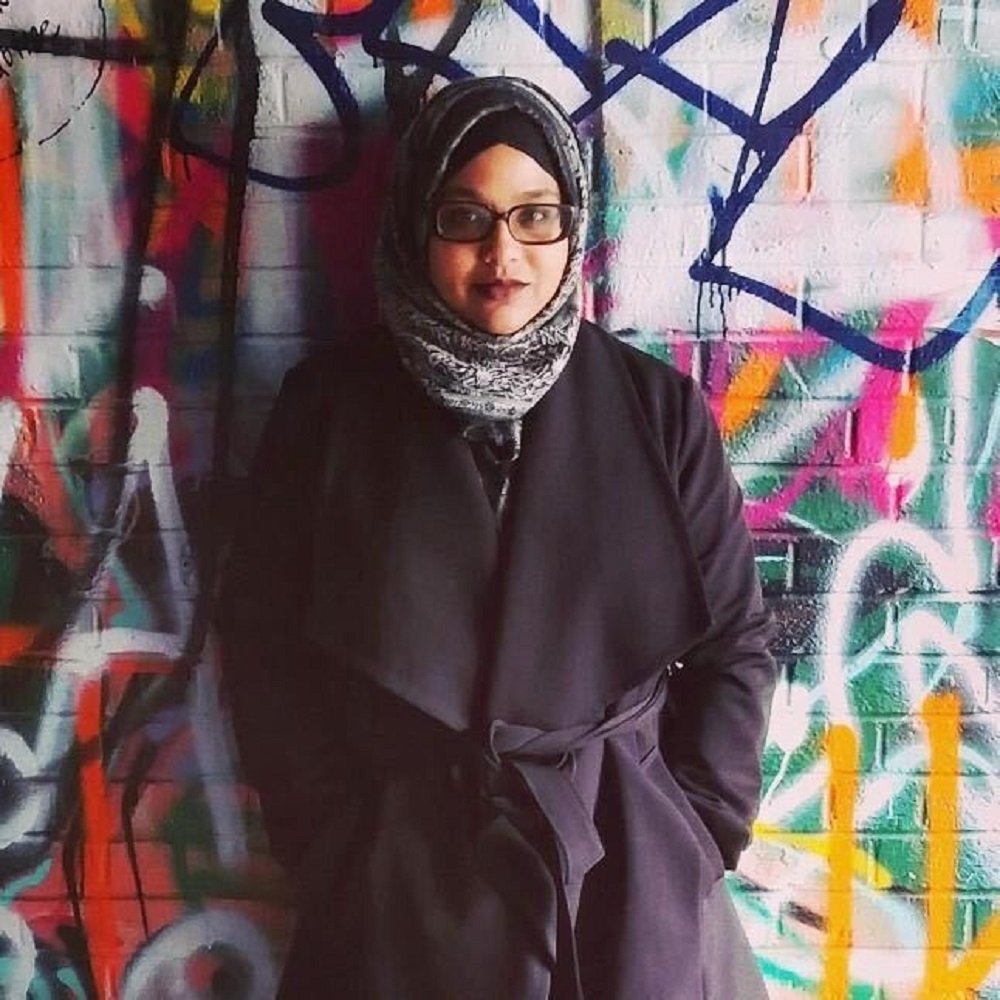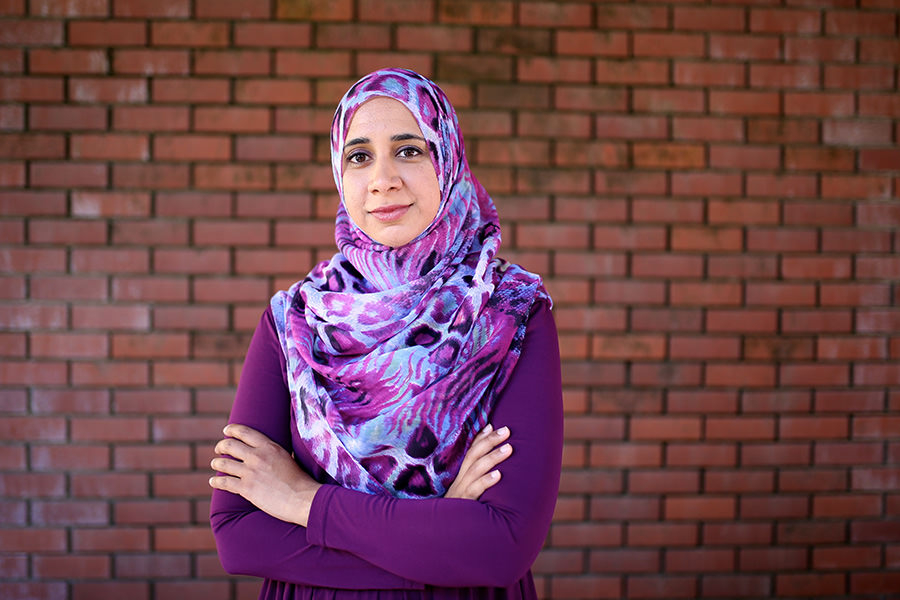What Makes for a Good Ally? Here are 10 Ways We Can Be Better Allies to Each Other
Lifestyle
|
Sep 27, 2021
|
8 MIN READ

Image source: Edgar Chaparo with Unsplash
This article is part of a special series exploring our stories as visibly Muslim women in the last two post-9/11 decades.
How does one be a good ally to a marginalized group (in this case, Muslims) in a way that is supportive, sincere, helpful and not performative?
In the past two decades since 9/11, a number of efforts and initiatives as well as partnerships grew from the depths of the tragedy to support and stand up with American Muslims, both helpful and more so demonstrative and shallow.
It’s tricky showing solidarity and support for marginalized groups, as the “show of support” sometimes can mask the deeper issues that need to be addressed or take the place of truly hard work of being there for the group that needs supporting. Case in point – wearing safety pins to show you’re an ally. (The latest uptick in this was after former President Trump took office in 2016) or when 1.5 million people “checked in” on Facebook as being at Standing Rock, North Dakota in solidarity with those who were protesting the oil pipeline being built there.)
A show of support is one thing, but how do you really help someone dealing with hate, othering and trauma? The tragic events of 9/11 was a pivotal point in American history for American Muslims, who had to learn how to deal with the trauma of watching the terror attacks unfold and then later be blamed for the attacks just by being Muslim. Allies emerged in the days after, but figuring out how to be a long-term, solid ally has always been the challenge.
Two decades after the attacks, Muslims need allies just as much as ever to continue the dialogue and interfaith work to move the needle forward on the kind of social justice change that comes with deep understanding and mutual support. I spoke with Zahra Billoo, the Executive Director of the San Francisco Bay Area office of the Council on American Islamic Relations (CAIR-SFBA) and Namira Islam Anani, a lawyer, graphic designer and co-founder of the Muslim Anti-Racism Collaborative (MuslimARC), to share their thoughts on allyship and how to be a better one.
While these suggestions are more geared for non-Muslims who want to be allies to Muslims, it also is applicable for Muslims seeking to be allies to other Muslim groups or other marginalized communities.

Image source: Twitter
Here are 10 ways you can become an ally and learn from those already doing the work.
1. Learn about Muslims: Seems basic, right? But according to a recent Pew study, American Muslims are a growing segment of the U.S., however about half of Americans say they don’t know much about Islam or Muslims. Groups like the Council on American-Islamic Relations has worked for decades to educate the masses about Islam and Muslims, through education, legal advocacy and interfaith work. Check out cair.com to find the nearest chapter to attend events and learn more.
You can also learn about Islam by visiting Qalam Institute, Yaqeen Institute, MuslimMatters.org, Rabata.org, ICNA and ISNA or our own blog here at Haute Hijab. There are so many resources to check out.
Namira says becoming educated about Islam involves learning about the diversity of Muslims and racial justice broadly, like understanding how Islamophobia, racism and xenophobia are intertwined.
“Thinking about Islamophobia from the lens of this combination ... coming as a force to be shaped by anti-Blackness and xenophobia as well as anti-Muslim bias and bigotry in the United States. So really thinking about how are you educating yourselves on these connections, and then how are you having solidarity practices with Muslims of all different ethnic backgrounds,” she says.
2. Center Muslim voices: Zahra says listen to Muslim voices, to “empower and follow Muslim leaders on issues that they are experts in. “It also includes advocating for Muslim voices where they might otherwise be absent.”
Get to know Muslims in your town by hosting a program that invites your neighbors, colleagues and leaders to talk about their experiences and let you know what resources they need to feel supported and a part of the community. Today all major workplaces are including BIPOC voices, including American Muslims. If you are in a position of power, hire qualified American Muslims.
Namira says centering diverse Muslim voices allows you to strategically build across the aisle. This includes allowing different Muslims, those who may or may not be visibly Muslim or those who might have accents, to tell their own stories.
Namira says she’s seen people consult with Muslims and relay the same information back as allies rather than supporting, funding or providing resources for Muslims to speak for themselves.
“So there's that really strong kind of push to not give us the reins. It's like this incentive to [say], ‘Okay, you tell us what to do but we're going to do it.’ It really speaks to a fundamental lack of trust,” she says. Namira adds that Muslims either get funded from their own organizations or self-funded to stay afloat in these allyship spaces because allies often don't provide the necessary funding.

Namira Islam
3. Provide cultural competency training: American Muslims say they still face discrimination for their faith, sometimes leading to mental health challenges and struggling to fit in. Create safe spaces by offering cultural competency training in your workplaces and a place that welcomes all people. As Muslims, we can also seek cultural competency training about different Muslim communities to whom we seek to be better allies.
Namira says one time she attended a convening to talk about Islamophobia, yet there was no space for prayer. She says on a basic level, those who are allies should understand the basic tenets of [Islamic] faith, even if not everyone follows them.
“It's demonstrating the most fundamental mistake, which is that people are focusing on Muslims as a racial group. And really, [it also shows] the racialization of Muslims rather than seeing the diversity of worship ... [if] you have people who are practicing Muslims on a day-to-day spiritual basis, then there [should be time] on the agenda and space in the room to actually pray.”
4. Be good to thy neighbor: If you have a Muslim neighbor, get to know them. Take them some cookies and extend a neighborly hand. Some American Muslims say they are tired of explaining themselves and their religion. So, take some time to read well-informed books, Google why Muslim women wear hijab and why Muslims pray five times a day! Also, read The Haute Take to learn about the multifaceted lifestyles of American Muslims.
5. Don’t assume we are all the same: Your school classmate from Detroit might practice Islam a little differently from your cousin’s best friend in Los Angeles. Know that Islam, like Judaism, Christianity and any religion, is a fold of people from various cultures and parts of the world. Each person will have their own experiences, and no we are not the same. We are not a monolith.
6. Diversify Muslim narratives: Namira says allies should include and seek different Muslim voices to get away from that “single story” narrative in the media.
“Think about how are we making sure to amplify multiple American Muslim narratives and not have just the one kind of type of Muslims [who] are showing up in the media or showing up on panels where they're being given platforms to speak for Muslims or represent Muslims. The more [multiple stories] we can have, the better,” she says.
Consider reading this piece that Namira wrote about how the failure in understanding that Muslims are diverse (and centering those voices) and understanding that Islam is a faith and not a culture of immigrants from South Asia or Middle East, creates Islamophobia in the name of allyship.
“For people trying to amplify stories, they often go for more “respectable” kind of Muslims, like people who don't have accents [or] are a little bit more liberal in various views,” she says, leaving out space for people with accents or the narratives of other Muslim groups, like Black Muslims, African Muslims, Asian Muslims, East Asian Muslims, Latinx, converts and Native American or Indigenous Muslims.

Zahra Billoo; image source: Bethanie Hines
7. Donate money to nonprofits: Once you’re ready to become an ally, find out which causes and Muslim-led organizations you want to support – from counseling services that help Muslims like The Family and Youth Institute, to CAIR, MPower Change and the Muslim Anti-Racism Collaborative.
8. Stand up and take risks: Allyship is great in theory but hard to do when it comes to taking personal risks, say Zahra and Namira.
Zahra says being an ally takes courage, that it is more than a photo opp. “A recent example of this is while all of the solidarity around the Muslim ban was appreciated, what we're often missing is the same [kind] of questions [regarding] human rights for Palestinians or closing Guantanamo. Those are just as critical, if not more critical, than the Muslim ban, but they are less popular. It requires more risks to be in solidarity on those issues,” she says.
Strong allies, says Zahra, are those who are allies when it’s not trending or on issues that require the risk of personal sacrifice.
9. Stay the course: Zahra says allyship is something you do consistently while continuing to learn and grow. She says this includes allowing Muslims in these spaces to individually grow and then adapting to that.
“It's also not to say that Muslims themselves don't need to do learning or shifting or evolving... and so calling in, is another opportunity for allyship that feels authentic,” says Zahra. (Calling in means to check in with compassion with your peers rather than calling out people.)
Namira says it’s important for people to understand that just being accepted or creating space at the table for Muslims is not enough. Solid allyship is an opportunity to examine the full system of oppression and fight for all forms of oppression and injustice.
“The win is really eradicating injustice across all these systems and thinking about the connections between Islamophobia and anti-lack racism or xenophobia and anti-indigenous policies, because those connections are all reinforcing each other. So we're not done if American Muslims are okay; the work is not done,” she says.
10. Build trust: Zahra says the deepest forms of allyship are built on friendship. “[Allies are] not just about the work; they're about the personal relationship, and it takes a lot longer than that one interaction or one opportunity. It requires consistency and continued investment on both sides.”
She says trust takes time, vulnerability and patience. “Trust takes a lot longer to build than it takes to collapse but I'm always cognizant that if we invest up front, we are stronger together. It just takes one bad interaction sometimes for a relationship to fall apart. [But] if we put the right amount of time into it, we may get different outcomes.”
Namira says she appreciates people who have good intentions with the openness to learn and understand. She says building trust is relationship building and getting to know one another.
“A lot of it is just thoughtful listening, the mutuality of the relationships. It's not just me performing my Muslimness for someone. [It’s] really meeting someone as [a] human and getting to know each other across differences, I think that goes a long way toward building trust,” she says.
It’s important to educate yourself to become a better ally to your American Muslim neighbors. This also goes for us as Muslims within our own spaces, as we work to become better allies to each other across our different communities, races, ethnicities and experiences.
Subscribe to be the first to know about new product releases, styling ideas and more.
What products are you interested in?

